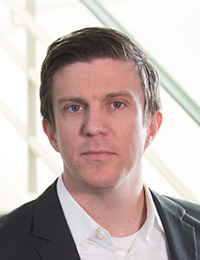
Associate Professor Peter Olshavsky’s essay “Reconfiguring Architectural Agency” appeared in the catalogue for Steven Holl’s exhibition at the Dorsky Museum. As part of the museum’s Hudson Valley Master series, Steven Holl: Making Architecture, examines the work of one of the world’s foremost architects (http://www.stevenholl.com/exhibits/126).
Curated by Nina Stritzler-Levine in collaboration with Steven Holl Architects, the exhibition reveals Holl’s intricate and distinctive process of making architecture through approximately one hundred models and related sketches and other studies created for nine recent projects, among them the Arts Building at Franklin and Marshall College, Pennsylvania; The Kennedy Center Expansion, Washington D.C.; the Museum of Fine Arts, Houston; and Maggie’s Cancer Care Center in London.
Dr. Olshavsky was invited to write an essay linking Holl’s work to architectural phenomenology. The essay argues that Holl’s recent architecture is rooted in a reconfigured notion of architectural agency. This reconfiguration provides three opportunities.
“It enables us to re-describe Holl’s important relation to the tradition of phenomenology. It shows architecture’s active comportment in socially embedded settings,” said Olshavsky. “It advances the insight: architecture makes us what we are”.
With a research focus in history, theory and design, Dr. Olshavsky was a clear choice for selection. “As a scholar in architectural history and theory, this was a wonderful opportunity to help shape the discourse on Holl’s recent work. Holl and the Dorsky Museum were very engaged and supportive,” commented Olshavsky. “I hope we will be able to work together again in the future.”
The exhibition is currently at Soongsil University Gallery in Seoul, Korea and will continue to travel internationally.
“Dr. Olshavsky’s invitation to author the essay exemplifies the quality of scholarly work produced by our renowned faculty. It is gratifying to see Peter’s work continually showcased on an international stage,” said College of Architecture Dean Katherine Ankerson.

 Study Architecture
Study Architecture  ProPEL
ProPEL 